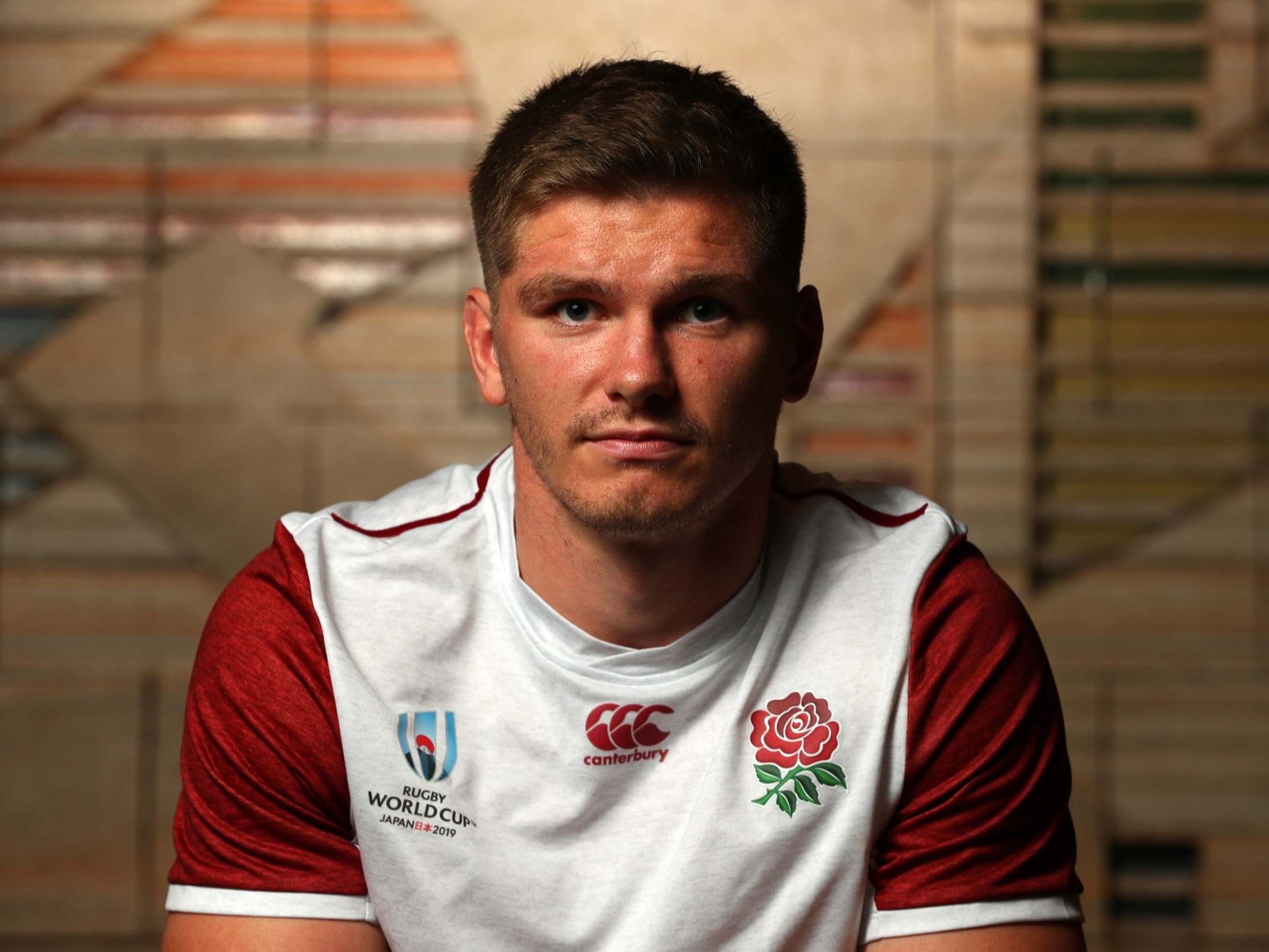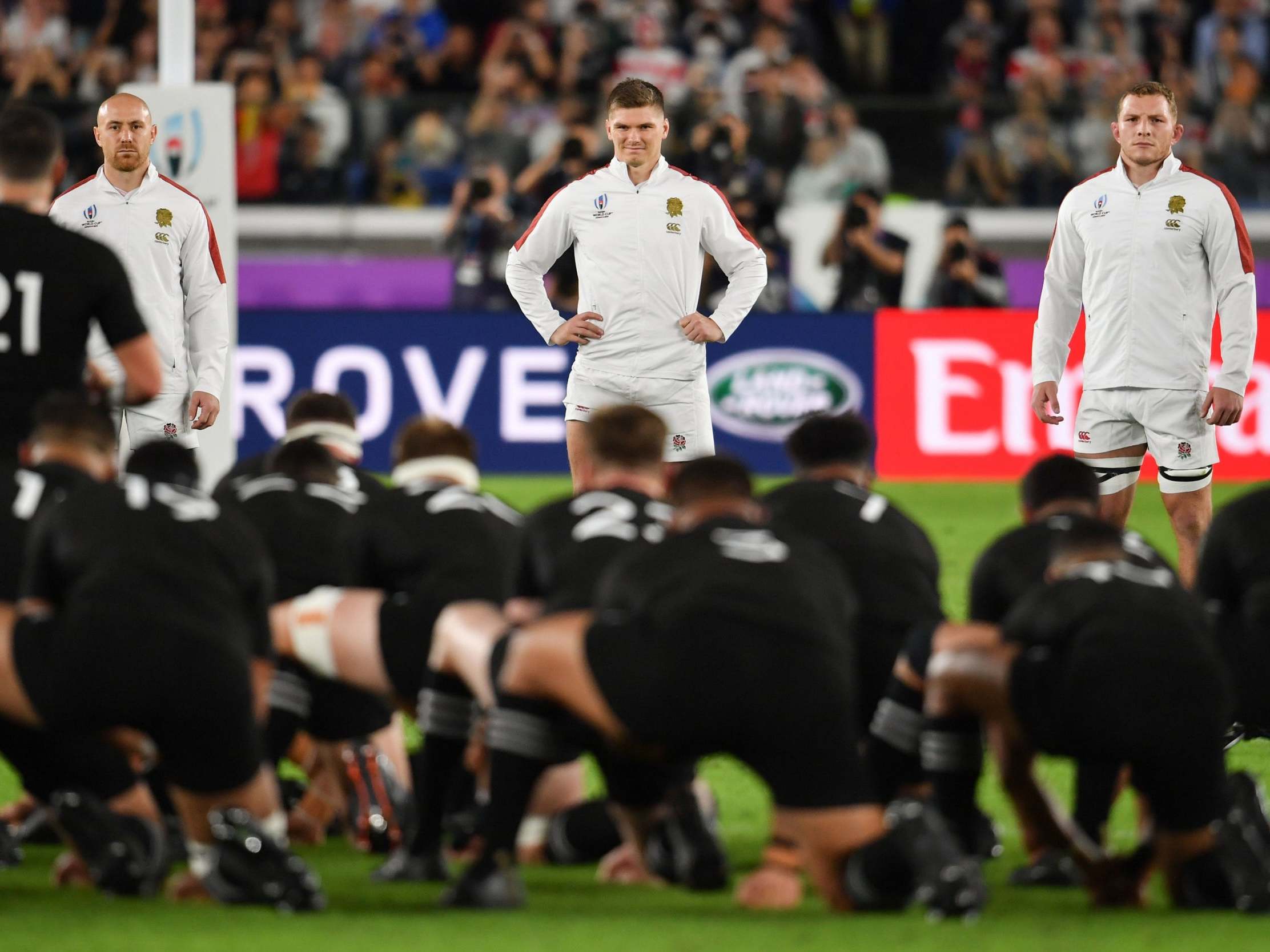Rugby World Cup 2019: Why talismanic captain Owen Farrell is the ice in England’s veins
Since his earliest days on the pitch, the team’s leader has carried a strange and powerful infatuation
Adam Jones tells a funny story about the first time he came across Owen Farrell in international rugby. The year was 2012, Wales were hunting the Triple Crown, and if you were looking for potential weak links in the England line-up, then a 20-year-old fly-half making his Twickenham debut seemed like the ideal place to start.
Except it didn’t quite turn out like that. As Jones recalls in his autobiography, early in the second half the enormous Alun Wyn Jones picked the ball out of the base of a ruck and charged at full pelt towards the young Farrell, who had foolishly stationed himself at first guard. Surely no contest. To the astonishment of Wyn Jones, however, Farrell was not merely standing his ground, but taunting him. “Come on, then!” he shouted. “F****** run at me, you c***!”
A reminder, if one were required, that from his earliest days in the game Farrell has always been one of those players who carries around with him a strange and powerful infatuation. You could call it self-belief, but in many ways, it goes even deeper than that: self-certainty, perhaps even self-inevitability. It would have been an even funnier story if Wyn Jones had subsequently bounced Farrell into next week, but he didn’t. Instead Farrell, despite giving away a sizeable weight deficit, wrapped two wiry arms around his man and stopped him dead in his tracks.
Jones remembers being so impressed by Farrell that day that he sought out his father and England assistant coach Andy to inform him that he had a rare and special talent on his hands. Of course, in the England camp they all knew that already, but perhaps even they didn’t yet quite know how special. For only the most optimistic of observers would have cast eyes on this scrawny, skittish young kid and seen the man who would one day lead England out in a World Cup final.
On Saturday evening in Yokohama, Farrell will become the fourth Englishman to captain his team in a World Cup final. The first was Will Carling in 1991, a military man from a boarding school background with an upper-crust smirk and a penchant for the good life: almost a cartoonist’s caricature of what an England rugby captain might look like. Then came Martin Johnson in 2003, a gruff, taciturn presence who preferred to lead by epic deed than by soaring word. Four years later it was the turn of Phil Vickery, the tireless Cornish tighthead whose leadership style was based on the non-negotiable fundamentals of desire, graft and warrior spirit.
Are leaders born or made? It’s probably a bit of both, but Farrell is perhaps the most “made” leader of the quartet: the only one, for instance, who has an academic qualification in the subject, having done a degree in business management at the University of Northumbria. He studies and researches and thinks about leadership in a way few of his predecessors did, to the point where Eddie Jones began to worry that he was spending too much time thinking about the captaincy and not enough on his game. And over the course of his journey in international rugby, Farrell has learned that the job demands a unique blend of consensus and artifice: the openness and humility that gets a room talking, the charisma that gets it to shut up and listen.
And when Farrell speaks in a team environment, others tend to fall quiet. On Friday night, when the England squad gather in their team room at the Keio Hotel in Tokyo for their last meeting before the World Cup final, many players will speak, but it is Farrell who will speak first, and speak definitively. “You can hear a pin drop,” says Jamie George. “He’s the sort of person you want to follow.”

Very little of this soaring rhetoric seems to make it into the public domain. Occasionally a television camera or an RFU documentary crew will be able to eavesdrop on little fragments. But for the most part, put Farrell in front of a row of microphones and you’d struggle to identify the gifted orator who so inspires his colleagues. He’s quiet, unremarkable, occasionally brusque, occasionally unsure of himself. But then, Farrell has very little inclination to communicate with us. Only in the sanctum of the team room, where his words can have a genuine impact, does he recognise the value of eloquence.
When he steps onto the field, however, something seems to shift within him. A large part of leadership is delusion: the brazen certainty that the universe can be bent to your will, in the face of mounting evidence. He may no longer lob C-bombs at unsuspecting opponents, but whether it’s gently leaning on referees, smirking during the haka, throwing himself into tackles or playing most of a World Cup semi-final on only one leg, Farrell manages to convey the impression that as long as he’s on the field, matters are under control.

It wasn’t always this way, of course. The younger Farrell was often identified by opposition teams as a target: as much temperamentally as defensively. There was the infamous scrap with Schalk Brits during his first Lions tour in 2013, a spicy dump tackle on Ben Foden playing for Saracens a couple of years ago that sparked a mass brawl, a couple of moments of indiscipline as recently as last year’s autumn internationals that could have ended up costing England the game. But very little of the younger, angrier Farrell seems to have survived the journey to Japan. He’s 28 now, a husband and father, the ice in England’s veins and the fire in their bellies.
How will he feel leading England out in a World Cup final? It’s a question to which perhaps not even he knows the answer. But we can be certain that it’s a moment he will have prepared and visualised well in advance: all week, all year, perhaps for many years. You’d call it a dream, but dreams are the sort of thing that happen to you. Better, perhaps, to imagine Farrell as a protagonist: the director of a production to which only he, seemingly, knows the ending.
Join our commenting forum
Join thought-provoking conversations, follow other Independent readers and see their replies
Comments
Bookmark popover
Removed from bookmarks